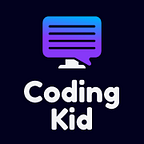10 Useful Python Projects for Beginners
Starting with programming can be overwhelming. With numerous languages, frameworks, and tools to choose from, beginners might find it hard to decide where to begin. However, the best way to learn programming is by doing. Here are ten beginner-friendly python projects that can help you get hands-on experience and build a strong foundation.
1. Hello World
Overview
“Hello, World!” is the simplest program in many programming languages. It’s the first step to understanding the syntax and structure of a new language.
Details
- Objective: Print “Hello, World!” to the console.
- Learning Outcome: Familiarize yourself with the basic setup, writing, and running of a program in the chosen language.
Example
print("Hello, World!")2. Simple Calculator
Overview
A simple calculator allows you to perform basic arithmetic operations like addition, subtraction, multiplication, and division.
Details
- Objective: Build a program that takes user input and performs calculations.
- Learning Outcome: Understanding variables, user input, and basic operations.
Example
def calculator():
operation = input("Choose operation (+, -, *, /): ")
num1 = float(input("Enter first number: "))
num2 = float(input("Enter second number: "))
if operation == '+':
print(f"Result: {num1 + num2}")
elif operation == '-':
print(f"Result: {num1 - num2}")
elif operation == '*':
print(f"Result: {num1 * num2}")
elif operation == '/':
print(f"Result: {num1 / num2}")
else:
print("Invalid operation")calculator()3. To-Do List Application
Overview
A to-do list application helps manage tasks and can range from simple to complex.
Details
- Objective: Create, read, update, and delete tasks.
- Learning Outcome: Handling lists, user input, and basic UI design.
Example
tasks = []
def add_task(task):
tasks.append(task)
def view_tasks():
for task in tasks:
print(task)
add_task("Learn Python")
add_task("Build a project")
view_tasks()4. Basic Web Scraper
Overview
Web scraping involves extracting data from websites. It’s useful for gathering information from the web automatically.
Details
- Objective: Fetch and display data from a webpage.
- Learning Outcome: HTTP requests, parsing HTML, and basic web concepts.
Example
import requests
from bs4 import BeautifulSoup
def fetch_data(url):
response = requests.get(url)
soup = BeautifulSoup(response.content, 'html.parser')
return soup.title.string
print(fetch_data("https://www.example.com"))5. Guess the Number Game
Overview
A simple game where the computer randomly selects a number, and the user has to guess it.
Details
- Objective: Generate a random number and give feedback based on user’s guess.
- Learning Outcome: Random number generation, loops, and conditionals.
Example
import random
number = random.randint(1, 100)
guess = None
while guess != number:
guess = int(input("Guess the number between 1 and 100: "))
if guess < number:
print("Too low!")
elif guess > number:
print("Too high!")
else:
print("You guessed it!")6. Password Generator
Overview
A password generator creates strong, random passwords. This project is great for learning about randomization and string manipulation.
Details
- Objective: Generate a random password with specified length and character types.
- Learning Outcome: Understanding of randomness, loops, conditionals, and string manipulation.
Example
import random
import string
def generate_password(length):
characters = string.ascii_letters + string.digits + string.punctuation
password = ''.join(random.choice(characters) for i in range(length))
return password
length = int(input("Enter the desired length for the password: "))
print(f"Generated password: {generate_password(length)}")7. Simple Chatbot
Overview
A basic chatbot can interact with users using predefined responses.
Details
- Objective: Create a program that mimics conversation.
- Learning Outcome: String manipulation, conditionals, and loops.
Example
def chatbot():
print("Hello! I'm a chatbot.")
while True:
user_input = input("You: ")
if user_input.lower() in ["hi", "hello"]:
print("Chatbot: Hi there!")
elif user_input.lower() in ["bye", "exit"]:
print("Chatbot: Goodbye!")
break
else:
print("Chatbot: I don't understand.")
chatbot()8. Weather App
Overview
A weather app fetches and displays current weather information for a specified location.
Details
- Objective: Use a weather API to get and display weather data.
- Learning Outcome: Working with APIs, parsing JSON, and basic UI.
Example
import requests
def get_weather(city):
api_key = "your_api_key"
url = f"http://api.openweathermap.org/data/2.5/weather?q={city}&appid={api_key}"
response = requests.get(url)
weather_data = response.json()
print(f"Weather in {city}: {weather_data['weather'][0]['description']}")
get_weather("New York")9. Tic-Tac-Toe Game
Overview
Tic-Tac-Toe is a classic two-player game. Building it helps understand game logic and flow.
Details
- Languages: Python, JavaScript, Java
- Objective: Create a playable Tic-Tac-Toe game.
- Learning Outcome: Game loops, conditionals, arrays, and user input handling.
Example
def print_board(board):
for row in board:
print(" | ".join(row))
print("-" * 5)
def check_winner(board, player):
for row in board:
if all(s == player for s in row):
return True
for col in range(3):
if all(row[col] == player for row in board):
return True
if all(board[i][i] == player for i in range(3)) or all(board[i][2-i] == player for i in range(3)):
return True
return False
def tic_tac_toe():
board = [[" " for _ in range(3)] for _ in range(3)]
current_player = "X"
for _ in range(9):
print_board(board)
row, col = map(int, input(f"Player {current_player}, enter your move (row and column): ").split())
if board[row][col] == " ":
board[row][col] = current_player
if check_winner(board, current_player):
print_board(board)
print(f"Player {current_player} wins!")
return
current_player = "O" if current_player == "X" else "X"
else:
print("Invalid move. Try again.")
print_board(board)
print("It's a draw!")
tic_tac_toe()10. Markdown to HTML Converter
Overview
A tool that converts Markdown text to HTML is useful for web developers and writers.
Details
- Objective: Parse Markdown syntax and generate corresponding HTML.
- Learning Outcome: Text parsing, string manipulation, and understanding Markdown and HTML.
Example
def markdown_to_html(markdown_text):
html_text = markdown_text.replace("**", "<b>").replace("##", "<h2>").replace("\n", "<br>")
return html_text
markdown_text = """
## Heading
**Bold text**
Normal text
"""
print(markdown_to_html(markdown_text))These projects are designed to help beginners practice fundamental programming concepts and improve problem-solving skills. Each project introduces different aspects of coding, ensuring a well-rounded learning experience
If you want to know the best way to learn programming, read this: https://medium.com/@lukinator.schoberer/the-best-way-to-learn-coding-2029cac9d33a
If you are not sure which language you want to learn next, read this:
https://medium.com/@lukinator.schoberer/whahe-best-programming-language-1a0bd3c0ed1b
LIKE and SUBSCRIBE for more programming related articles
ChatGPT was used in this article
